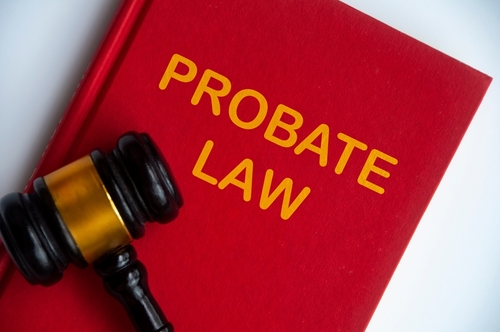Probate is a time-consuming and potentially expensive process. It’s important to understand which factors affect how your estate goes through the probate process and if there is a threshold value that triggers whether your estate qualifies for a small estate probate procedure.
State laws will vary, but the value of your estate will determine whether it goes through the full probate process or if you qualify for simple probate.
What is Probate?
Probate is a legal process in which the court oversees how the deceased person’s estate is administered and distributed. Probate is intended to ensure the fair and lawful distribution of a person’s assets.
Steps in the full probate process can include:
The Executor:
- Files a petition and gives notice of the death.
- Files the will with the court.
- Notifies any creditors, heirs, and beneficiaries that the estate is in probate.
- Gathers and appraises all the estate’s assets.
- Pays all outstanding debts and taxes.
- Distributes the remaining assets to beneficiaries according to the will. If there is no will, then state laws will be followed instead.
The Court
- Authenticates the decedent’s last will and testament (if there is one).
- Appoints or approves an executor to oversee the process.
- Reviews the records and closes the estate.
Each state has laws that stipulate when an estate must go through the entire probate process.
Does Every Asset Have to Go Through Probate?
With proper estate planning, many assets can be transferred to heirs without going through the probate process. Any life insurance proceeds, retirement accounts, pension plan distributions, or securities or accounts that have direct beneficiaries listed can go directly to the heirs named in the policy or account. They do not have to go through the probate process.
Any assets that are trust-owned can also be passed directly to the beneficiary without going through the probate process. A trust is an estate planning tool that creates a fiduciary relationship between the person who creates the trust and the trustee who manages it. The trustee manages the trust’s assets for the benefit of one or more beneficiaries.
Real estate that is jointly owned and has a right of survivorship clause can also pass to heirs without going through probate.
Investment accounts that lack named beneficiaries, real estate that is not jointly titled, personal property, and stocks and bonds are examples of assets that must go through probate unless they are placed in a trust.
What is Simplified Probate?
State laws vary on the threshold that an estate value must fall under to qualify for simplified or summary probate. If your estate value falls under the threshold, it may be eligible to pass through the probate process more quickly, which can save time and money.
Determine Your Estate’s Value to See if it Qualifies for Simplified Probate
The first step in determining an estate’s value is to inventory and appraise everything. Your executor will go through all real estate holdings, vehicles, insurance policies, retirement and other accounts, and any other assets that you owned at the time of your death.
Before determining a home’s value, the executor will need to consider whether your state requires them to use the market value of the home or if they can subtract any amount you still owe on the home from its total value.
After they determine the total value of your estate, they will subtract the value of any assets that do not have to go through the probate process, such as any jointly held property with a right of survivorship clause.
If your final estate value is below your state’s threshold for simplified probate, your executor can file for a simple probate process. Since property values change over time, you can estimate whether you fall below the threshold now, but the process will be repeated at the time of your death.
How Can I Make This Process Easier for My Heirs?
To make the process easier for your heirs, ensure that you work with your estate attorney to keep your will up-to-date. Check all of your accounts and life insurance policies and verify that you have named beneficiaries for them. Consider how you will transfer any online assets, such as cryptocurrency, to your heirs.
Discuss your financial goals with your estate attorney. They can suggest estate planning instruments, such as trusts, that enable you to transfer your estate to your beneficiaries without going through the probate process.
Speak to a trusted advisor to help you develop your estate plan. Contact us, and schedule a call with us at 855.631.3457 to learn more about how to protect those most important to you.








